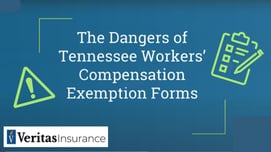Instant Workers' Compensation Rates for Roofers in Tennessee
Work Comp for Roofers is expensive, partner with us to get the best Roofing Work Comp rates
Best Roofer Work Comp Rates in Tennessee
Start Here
Let's start quickly, just enter your estimated payroll and you will get instant quotes for Roofing Workers' Compensation.
We will give you a range of Roofing Workers Comp prices. The final pricing is going to be determined by certain characteristics of your business. We will talk about those after you get the prices.
Sheetmetal Installation Payroll:
Clerical/Office Payroll:
Estimating/Sales Payroll:
After you get the initial premium, if you want to try a different payroll amount, refresh your browser and it will reset the fields.
Factors that will determine your work Comp premium
Amount of Payroll
Years in Business
Claims Experience
Safety Program
Experience Modification Factor
Type of Roofing Work Performed
Radius of Operation
Amount of Work Subcontracted
We go into detail of each of these below.
Got Questions? Need More Information?
Just let us know how to reach out to you
Factors that impact Roofer Workers' Compensation Premium
AMOUNT OF PAYROLL
The amount of payroll is the primary component in calculating Workers' Compensation premiums for roofers and all businesses. Essentially, the more employees a business has and the higher their wages, the more likelihood of a work comp claim. For the most part, a Tennessee Roofing Contractor's Work Comp premium is calculated based on a rate per $100 of payroll. The reason I say, "for the most part" is because other types of compensation can come into play. Keep in mind that many times you can separate your roofing business' payroll based in the type of work your employees are performing. Each type of work has a different workers comp classification and rate. As you see in the Tennessee Roofing Workers Compensation premium calculator above, I show 4 different classifications. I am not going to give up all my secrets now that we know a lot of other insurance agents come to my web pages to get information! 😂
Keep up with what your employees do because the more detail you have, the lower you can get your premium. As far as what counts as payroll and what does not, the state of Tennessee uses NCCI's Basic Manual for that determination. NCCI does not publish their manual online for free, but the state of North Carolina has a similar one online right here that you can view and most of the information is identical.
YEARS IN BUSINESS
The number of years a company has been in business can influence the Workers' Compensation premium. Newer businesses do not have a track record, making it harder for insurers to predict risk. In such cases, insurers might charge a higher premium. However, as businesses mature and establish a claims history, this can be evaluated and potentially lead to premium adjustments. The U.S. Small Business Administration has discussed the challenges new businesses face, including insurance costs and you can read about those right here.
AMOUNT OF WORK SUBCONTRACTED
 Businesses that subcontract a significant amount of their work might have different risk exposures than those performing all work in-house. If subcontractors don’t carry their own Workers' Compensation insurance, the primary business could be held liable for any subcontractor injuries, thus raising premiums. Specifically in the state of Tennessee, a subcontractor can file an exemption with the Tennessee Department of Labor. If you have a subcontractor who does not have Workers' Compensation, you can check here to see if they are on the Tennessee Workers' Compensation Exemption Registry. BEWARE! Using a subcontractor who has a TN Work Comp Exemption could bankrupt you. Click here or on the picture to learn how that one form could cost you your business. The U.S. Department of Labor offers guidance on the responsibilities of employers and subcontractors. You can find information on the Department of Labor website right here.
Businesses that subcontract a significant amount of their work might have different risk exposures than those performing all work in-house. If subcontractors don’t carry their own Workers' Compensation insurance, the primary business could be held liable for any subcontractor injuries, thus raising premiums. Specifically in the state of Tennessee, a subcontractor can file an exemption with the Tennessee Department of Labor. If you have a subcontractor who does not have Workers' Compensation, you can check here to see if they are on the Tennessee Workers' Compensation Exemption Registry. BEWARE! Using a subcontractor who has a TN Work Comp Exemption could bankrupt you. Click here or on the picture to learn how that one form could cost you your business. The U.S. Department of Labor offers guidance on the responsibilities of employers and subcontractors. You can find information on the Department of Labor website right here.
CLAIMS EXPERIENCE
A company’s past claims experience significantly affects its Workers' Compensation premiums. Businesses with frequent claims may be viewed as higher risk and thus be charged higher premiums. Conversely, businesses with fewer claims might be rewarded with lower premiums. This reflects the insurer's need to cover potential payouts.
SAFETY PROGRAM
Instituting a robust safety program can positively impact Workers' Compensation premiums. By actively working to reduce workplace accidents through training, equipment upgrades, and safety protocols, a business can often negotiate for lower premiums. Some states offer premium credits or discounts to businesses that implement state-approved safety programs. For example, the Occupational Safety and Health Administration (OSHA) provides guidelines and recommendations for workplace safety just for roofing contractors right here.
RADIUS OF OPERATION
A company's operational radius can also impact premiums. Firms that operate locally might have different risk exposures compared to those that work in multiple states or regions, especially if they're working in areas with different climatic conditions or regulatory environments. Differences in state Workers' Compensation laws can also play a role in premium calculations.
EXPERIENCE MODIFICATION FACTOR
The Experience Modification Factor, or Mod, is a multiplier applied to a business’s Workers' Compensation premium, reflecting its claims history relative to others in the same industry. A Mod of 1.0 indicates that a company's loss experience is average. A Mod greater than 1.0 means a worse-than-average experience, resulting in a higher premium, while a Mod less than 1.0 indicates better-than-average experience, leading to a lower premium. The National Council on Compensation Insurance is a major resource for Mod calculation and we have more information in our blogs as well.
TYPE OF ROOFING WORK PERFORMED
The specific type of roofing work can greatly influence Workers' Compensation premiums. For instance, jobs involving hot tar roofing might be considered riskier than shingle installations, leading to higher premiums. The classification codes defined by industry standards help insurers determine the level of risk associated with specific types of roofing jobs.
For more information about other types of Roofer Insurance in Tennessee, click here.
2 min read
Health Insurance Options for a One-Employee Business in the Tri-Cities
Andrew Darlington: Jan 26, 2026
6 min read
Why should I add Uninsured Motorist Coverage to my Umbrella Policy in Tennessee
Andrew Darlington: Dec 31, 2025
3 min read
A Strategic Heads-Up: The Coming Squeeze on Workers' Comp Audits
Andrew Darlington: Oct 24, 2025
2 min read
Avoid a Huge Tax Bill: Estimating Your Income for Health Insurance
Andrew Darlington: Oct 7, 2025
2 min read
WARNING! Maximum Income for Health Insurance Tax Credits in 2026
Andrew Darlington: Oct 4, 2025




